Being a team of Accredited Exercise Physiologists you would think that the most important thing for our Clinics is our exercise prescription. Of course exercise is hugely important, it’s what we do, how we get results and how we can clinically support our services. However this year the NAH management team have asked the team to focus on something a little special.
Our Focus – Client Connection
When looking at sporting teams the coach-athlete relationship will often harbour the best results. You can see this evidently in the current Olympic games with the Swimming Coach Dean Boxall. Why should clinical rehab be any different? If we want our clients to perform better we need to be able to connect with them, nurture their strengths and work around their weaknesses. This connection will secure their trust and thats when we can educate and empower them. As practitioners we need to assume that coaching role which is impossible to do without really building on that relationship.
What we have learnt
We have been running AEP sessions for 7 years at NAH and we have seen a lot of Exercise Physiologists doing their thing and doing it well. With several of our AEPs with over 10 year’s experience and some fresh out of uni we have a variety of levels of experience. Both bring a dynamic approach to our team and we thrive off developing the new grads while valuing their perspective on our practises. Our on boarding process now places a focus on nurturing the relationships with clients and how to build those relationships. Studies demonstrate that the better the relationship with clients the better the health outcomes. Margaret Potter, Sandy Gordon, Peter Hamer uncovered in their study that ‘Good experiences in physiotherapy were most often attributed to effective communication by the physiotherapist’ (1). This is not something that can be taught, rather something where we can provide support to build confidence and bolster each practitioners individuals character traits and genuine behaviour styles.
Something we see commonly with new Exercise Physiology graduates is an over emphasis on ‘professionalism’ and prescribing new and complex exercises to treat chronic injury and conditions including mental health. While this is definitely relevant and effective, it can come across as a little cold and generic. To harbour the best results we need to boost client retention, we know that without consistence and persistence, like most things client outcomes are limited and longevity of vitality is compromised.
What can we do about it?
As reported by one of our beautiful clients, here are 7 things a practitioner can do to build a trusting and strong relationship with their client.
- Smile – Smile from within, your energy is everything. So take care of yourself first, do what lights you up and then you will be in the best position to connect and help others. Come back to why you got into this world of rehab and helping people and live with that intention.
- Inter-practitioner communication – Get an adequate handover. For new clients ensure that the referral is thorough, if it’s not get in touch with the referrer or do thorough screening call prior to the first session.
- Become a ‘safe’ person – In that first session, explain how the service works but focus primarily on that relationship. Listen to their concerns, follow up with them and take notes so you can pick up the conversation in the next session.
- Treat them like your family – enough said.
- Accept that some people are just not the right fit and that’s ok – Not everyone will be the right fit, for a genuine connection accepting this early on is imperative.
- Listen, be curious and understand the clients vulnerability – Showing empathy needs to be a primary focus. Put yourselves in their position, feel what they are feeling and then help them by building a supportive plan with open communication and inspiring and relevant goals.
- Encouragement – Just because someone has a chronic condition doesn’t mean they are not motivated, its just establishing how to best tap into that motivation. Then challenge them based on the above! Set them up for feeling a sense of achievement.
We don’t need to justify our position in the health industry, we are here, our position is loud and proud, what we do need to do though is to connect with our clients and create welcoming, warm and safe communities. Our clients often have several health conditions, the barriers to exercise are far and wide. Its just not going to be on the top of the list of things to do everyday when pain is a deterrent, it sometimes feels like a complete contradiction. So if they don’t want to come for the exercise they need to come for something else.
Our primary focus is to remove the barriers to exercise.
If the connection, the relationship and the care is there then our community will come for the chat, for the social interaction and once we get them here, then we can reveal our exercise magic. However first things first we need them to want to come and see us. Studies support that symptomatology was significantly improved with supportive client-practitioner relationships (2).
This is what lead us to our create our exercise haven at our new space in Caboolture South. We have created a community space, we provide fresh fruit, toast, muesli and tea and coffee. We want to be the safe space for our community. A safe space to come, connect and of course work towards being our best self, practitioners and clients alike.
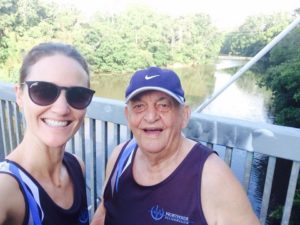
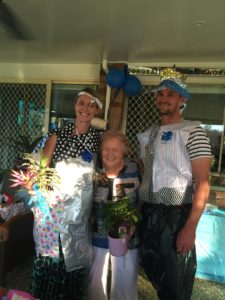

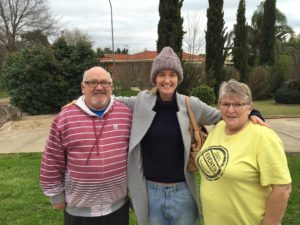
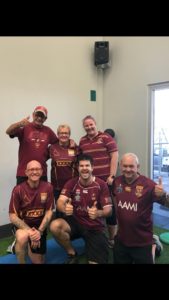
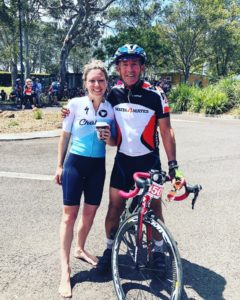
References
- Margaret Potter, Sandy Gordon, Peter Hamer, The physiotherapy experience in private practice: The patients’ perspective, Australian Journal of Physiotherapy, Volume 49, Issue 3, 2003,
https://www.sciencedirect.com/science/article/pii/S0004951414602397
- Lisa Ann Conboy, Eric Macklin, John Kelley, Efi Kokkotou, Anthony Lembo, Ted Kaptchuk, Which patients improve: Characteristics increasing sensitivity to a supportive patient–practitioner relationship,Social Science & Medicine,Volume 70, Issue 3,2010, Pages 479-484, ISSN 0277-9536, https://doi.org/10.1016/j.socscimed.2009.10.024.
- Buining, E.M., Kooijman, M.K., Swinkels, I.C.S. et al.Exploring physiotherapists’ personality traits that may influence treatment outcome in patients with chronic diseases: a cohort study. BMC Health Serv Res 15, 558 (2015). https://doi.org/10.1186/s12913-015-1225-1
